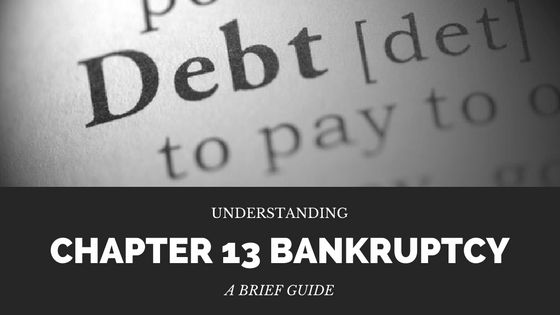While a stigma has traditionally be associated with bankruptcy, the laws are designed to provide a fresh start for those who are no longer able to pay their debts because of financial hardship caused by illness, loss of work, or other obstacles. And although you may have heard that you’ll lose your property if you file for bankruptcy, that’s not necessarily the case. If you’re struggling with your bills and concerned about losing your car or your home, here’s what you need to know about Chapter 13 bankruptcy.

What Is Chapter 13 Bankruptcy, and how is it Different From Other Types of Bankruptcy?
Chapter 13 bankruptcy is sometimes called a “wage earner’s” plan because it’s often a good solution for those who have income and want to make a plan to pay off debts so they can avoid losing homes and other property. A payment plan is developed based on the amount of income an individual has left after supporting his or her lifestyle. This plan may last from three to five years and requires a lump sum to be paid to creditors each month. Because secured debts are spread out over this period, payments are often lower than the amount the individual is currently required to pay. Payments are made to a Chapter 13 trustee who distributes the funds to creditors, effectively ending the individual’s contact with their creditors and streamlining the process of paying off debt. After the three to five year period specified in the filing, the remainder of the debt is forgiven.
Can I Save My Home with Chapter 13 Bankruptcy?
Those who file for Chapter 13 bankruptcy can petition an end to any foreclosure proceedings and arrange to pay their delinquent mortgage balance over time. If you have a second mortgage, the court may convert this debt to an unsecured debt by a process known as lien stripping, which means you’ll no longer be liable for the full amount, and the company holding the second mortgage has no claim on your home if payments are missed. This type of bankruptcy is also an option for those who are behind on car payments or payments for other types of secured property, as well as those who owe back taxes.
Who Is Eligible to File for Chapter 13?
The U.S. Bankruptcy Code dictates that any individual with debts of less than $383,175 and secured debts are less than $1,149,525 can file for Chapter 13 bankruptcy, provided he or she has not had a Chapter 13 filing dismissed within the previous 180 days for failure to appear at scheduled hearings. Credit counseling is required within 180 days before filing. A bankruptcy lawyer can review your individual situation and determine whether Chapter 13 bankruptcy might be a good solution for your debt.
What Happens When I File Chapter 13 Bankruptcy?
If you live in the DFW area, your Dallas bankruptcy lawyer will first file a petition with the bankruptcy court serving this jurisdiction. Along with the petition, you’ll have to supply supporting documents that detail your current financial situation, including assets and liabilities, income and expenditures, and any contracts or leases that are currently active, along with pay stubs and other proof of income as well as tax returns and transcripts. You’ll also need to furnish a certificate of credit counseling and a copy of any debt repayment plan developed through credit counseling.
Once the petition is filed, you’ll receive an “automatic stay” which immediately stops all collection action by your creditors. This automatic stay also stops foreclosure proceedings, though these may be reinstated if any payments are missed after the Chapter 13 filing is discharged and the payment plan begins.
Within 14 days of filing, your attorney will submit the debt repayment plan, which provides for payments of fixed amounts to the trustee on a regular basis, typically biweekly or monthly. Within 30 days of your bankruptcy filing, you will be required to make the proposed payments to your Chapter 13 trustee, who will distribute the payments to your creditors.
Within 50 days of the filing, a meeting of creditors occurs, which you’ll attend along with your bankruptcy lawyer. You’ll be required to answer questions about your financial affairs and the proposed terms of the plan to pay back your debt.
Then, within the next 45 days after the meeting of creditors, the court will give final approval for the repayment plan. After the three or five-year period specified in your filing, most remaining debts will be discharged. During this period, you’ll also be required by the court to complete a financial management class.
What Is the Cost of Filing Chapter 13 Bankruptcy?
Under the law, the court must charge a $235 case filing fee. In addition, bankruptcy attorney fees vary and may be included as part of the payment plan made in conjunction with the court and Chapter 13 trustee.
Chapter 13 is often a good decision for those who have stable income, but too much debt. If you’re concerned about paying back your debt and wish to prevent your home from being foreclosed and/or protect other assets, the law firm of David S. Kohm & Associates can review your situation and help you understand your options. Give us a call today!










